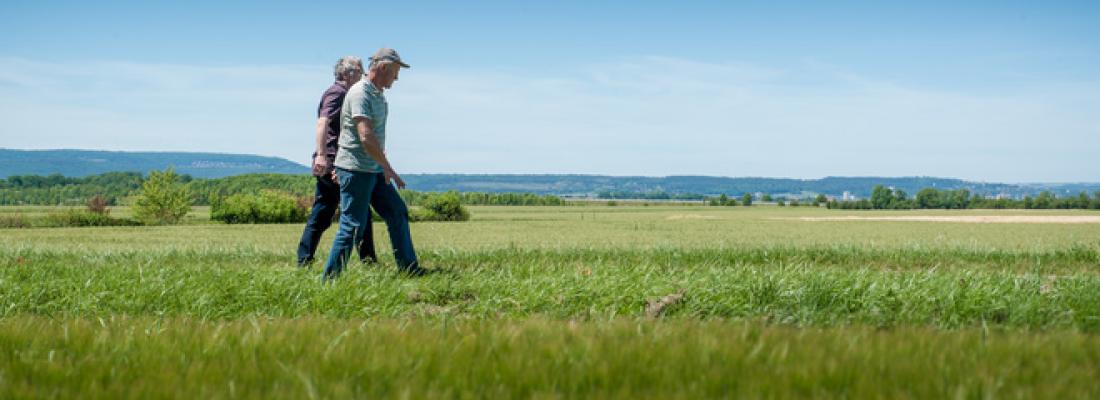Climate change and risks Reading time 2 min
Debate: Agriculture vs. climate change
Published on 11 July 2022

Can we feed the world with a warmer planet? This was the question asked to the panel of experts in the Euronews debate on July 6, 2022.
Panel composition
Dr Carlo Buontempo, Director, Copernicus Climate Change Service
Carolina Wackerhagen, Project Coordinator, Lake Constance Foundation
Christian Huyghe, Scientific Director of Agriculture, INRAE
Wijnand Sukkel, Senior Researcher in Agroecology, Wageningen University
Highlights of the debate
Christian Huyghe, who was part of the panel, reminded us that we need to consider the whole picture when it comes to the consequences of climate change on agriculture. How do we change the entire cropping system? “We need to redesign the cropping system which means dramatic change for farmers and for the supply chain“, he said.
Where are the solutions? Crop diversification: “by combining crops we can reduce the impact on the environment”.
The consequences of climate change in France on wine crops
Christian Huyghe explained that the dates of yearly wine harvests suddenly changed in 1980, happening in some places as early as 4 weeks earlier than previously. This implies higher degrees of alcohol, changes in taste, but also the need to invest in additional equipments such as cooling systems, while earlier blooming is causing more exposure to late frost.
In a world with 1,5°C more, in addition to the impacts of temperatures on crops and animals, he warned about the growing risks of pest and disease.
